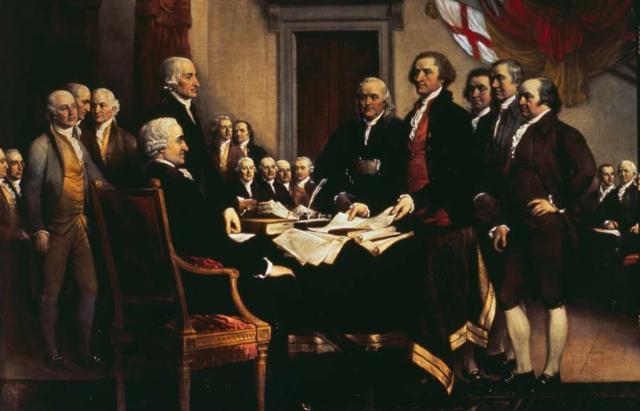


Elected government officials are placed in a position of immense public trust, being given levels of power few others in western society will ever hold. With that trust comes an expectation of behavior -- a level of accountability they should hold themselves to beyond mere compliance with societal rules.
Yet beneath every public decision lies a deeper question: What moral codes do these officials actually follow? Are they guided by timeless virtues, or by outcomes? Do they govern with character, or with calculation?
In the endless back and forth struggle to decide the “right” course of action, it’s impossible to miss the parallels with age-old philosophical battles. People have long debated whether decisions should be guided by virtue, outcomes, or self-interest. Virtue ethics, dating to Aristotle, teaches that we must act in accordance with noble character traits like courage and honesty. Utilitarianism, by contrast, says the right choice is whatever benefits the most amount of people. Moral egoism defends acting in one’s own self-interest as a moral right.
Few candidates represent themselves as moral egoists during election season. In fact, most choose to represent virtue-based ethics during this time, emphasizing their lifelong history of integrity, honor, and service to their country in campaign advertisements and speeches.
Once in office, their decisions often tell a different story. Evaluating objectively, many elected officials operate, at best, as utilitarians -- and in many cases, more closely align with moral egoism.
It is the responsibility of voters to recognize this ethical gap and to be discerning about who we place in positions of public trust. While egoism is rarely openly admitted, the more common, and more subtle, tension is between virtue and utilitarianism.
Governments are often required to make decisions based on what is best for the people; and what better mechanism than choosing the option that produces the greatest good for the greatest number of constituents?
Consider a bill up for vote: it contains some elements you support, but also many provisions you disagree with -- and perhaps campaigned against. Still, the decision to vote “Yes” is justified through pure utilitarian reasoning. The bill produces a net good, or a net-positive happiness, for the American people, and therefore the rest can be “stomached.” This kind of calculation plays out like clockwork in legislative chambers across the country.
There is, however, a flaw in this justification. Utilitarianism works fine when deciding certain elements of small scale, like choosing where to get lunch with coworkers. You may want barbecue, but the other four coworkers want sushi. It’s an easy decision.
But when discussing matters of governance, that logic no longer suffices. In ancient Rome, Octavian seized wealth from much of Rome’s richest by force. He did so to fund the expansion of the empire and power its armies with food and equipment.
This action may have benefited the Roman majority, but was it right? Was it virtuous? Is it morally justifiable in a free society?
It is in this disregard for the inalienable rights endowed by our Creator that utilitarian governance ultimately breaks down.
Decisions cannot be made solely based on what benefits the greatest number of people -- lest we succumb to the tyranny of the majority our Founders warned against -- only now through the intermediary of a legislature.
We must instead make decisions that uphold virtuous qualities, guided by reason. The candidate who sees it as their personal responsibility to uphold the values our society holds dear, and applies them with God-given reason, will always hold that position of trust with honor -- no matter what side of the aisle they sit on. Unfortunately, representatives like these seem to grow fewer with each passing decade.
Many throughout history have dismissed philosophical discussion, claiming it lacks practical outcomes and is even a waste of time. But philosophical battles unfold on a national scale daily -- even if we fail to recognize them.
Our Founders built a system that, despite all its checks and balances, the burden of choosing good candidates still falls on the people. And a people who can use both intuition and reason to identify and elect those who truly live by virtue will prosper.
Dalton Henderson is an Active-Duty Army Ranger writing in a personal capacity.

Image: John Trumbull
